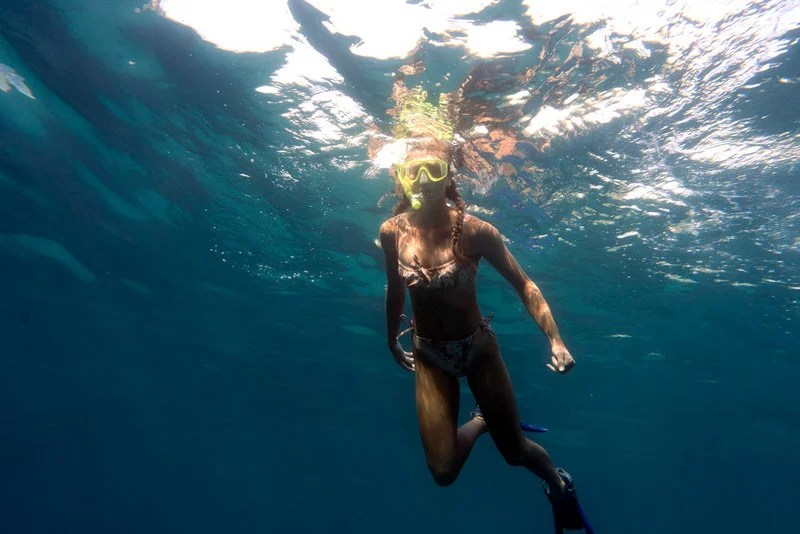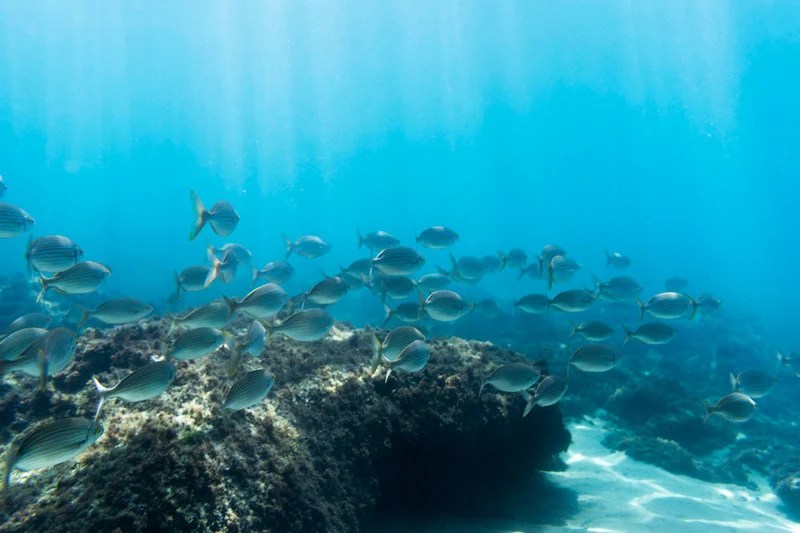SNORKELING FOR BEGINNERS: TIPS AND TECHNIQUES FOR FIRST-TIMERS

Are you ready to go all Jacques Cousteau? If so, you’re in for a treat. Snorkeling is a great way to explore Neptune’s kingdom and get up close and personal with some of the most enigmatic creatures on Earth. Before you take the plunge, however, it’s important to make sure that you have all of the necessary equipment and knowledge to ensure a safe and enjoyable experience. Following these tips and techniques, you will have an awesome first-time snorkeling experience — one that ends up being 100% enjoyable and safe. Keep reading and get ready to dive in.
Can beginners go snorkeling without any prior experience or training?
It’s all about baby steps. Snorkeling is a great way to get your feet wet and observe this world’s vibrant marine life without needing any prior experience or training. Even beginners can go snorkeling and enjoy the beauty of the sea. However, it is important to take some safety precautions and to be aware of potential risks inherent to the practice. With the right gear, some basic knowledge, and a passing knowledge of safety protocols, snorkeling for beginners is a cakewalk.
Swimming and snorkeling
For many people, snorkeling is a fun and exciting activity that allows them to explore our world’s oceans. It has an advantage over many other water sports because of its simplicity. It’s not necessary to carry a bag full of bulky-expensive equipment or complete a certification program to enjoy. Snorkeling is quite accessible to almost everyone because all that is required to begin is a small set of tools and knickknacks and some rather basic skills.
Now, let’s address the elephant in the room. Do you need to know how to swim to snorkel? While it is true that the practice does not require any special skills, it is important, when first time snorkeling, to understand that knowing how to swim is a plus.
If you plan on snorkeling in shallow waters, then all you have to do is float — that’s it. Knowing how to swim isn’t a deal-breaker.
However, if you plan on going deep-sea snorkeling, then it is highly recommended that you learn how to swim first. This will ensure your safety and allow you to enjoy the experience more fully.
Another question is whether you are thinking of snorkeling as a regular hobby. Then, it is strongly advised that you learn the basics of swimming first. This will not only assist you in staying afloat but will also ensure that you avoid any potentially hazardous scenarios when at sea or in the ocean.

Common mistakes you should avoid when snorkeling
Snorkeling is an exciting and adventurous activity, but it can also be dangerous if you don’t take the necessary precautions. To help you stay safe and enjoy your first-time snorkeling experience, here are some of the most common mistakes to avoid when snorkeling.
Feeding fishes
New snorkelers frequently make the error of attempting to feed the fish they observe underwater. Well, don’t. The fish may attack. The happy little Nemos are not at all interested in a few small crumbs that are tossed at them because they are already quite content with all of the rich nutrients that they obtained from their environment. And the bigger ones, well, there’s a movie called Jaws that basically highlights their eating habits.
Snorkeling in strong currents
Stay away from strong currents.
Always inquire about the sea currents before snorkeling, so you can avoid the practice when Mother Nature is out of control.
Snorkeling alone
Never dive too deep or venture too far from shore without a partner. Having someone else with you can help alert authorities if something goes wrong and provide assistance if needed.
Weariness
You should never embark on an excursion when you are worn out. The activity can make you feel exceedingly exhausted. If you feel like you might faint at any moment, you won’t be able to enjoy yourself underwater.
Using the wrong equipment
Most new divers won’t know what gear they require or what might be useful. Before making unnecessary purchases, make sure to seek the guidance of other snorkelers and professionals. Beginners shouldn’t use equipment that is too complicated since they won’t grasp their real use and could get confused.
Also, make sure to always wear a life vest or other buoyancy device while snorkeling. This will help keep you afloat in case of any unexpected currents or waves.
Not applying proper sun protection
Typically, snorkeling is a summertime water sport. As a result, the sun’s reflection in the water intensifies its power — think an ant under a scope.
To prevent skin burns, it is crucial to always apply appropriate sun protection creams and lotions.
Not being aware of marine life
Be aware of your surroundings and watch out for marine life — remember, you encroaching on their territory. You’re the outsider.
It’s normal to have common, non-biting, non-threatening fish around. But it’s critical – and this is Darwisnim 101 – to avoid sharks, eels, barracudas, seals, and other aquatic animals considering themselves, and rightly so, that pond’s top dog.
Ignoring the Weather
Always, open up your weather app and use it to plan your excursion.
While summer appears to be a fantastic time for snorkeling, it also has several drawbacks.
Sweltering heat, unexpected rain, uncomfortably windy, and intensifying storms are only a handful of the many outcomes the weather might bring about.
So, you say, “Sure, what about winter? I’ll use one of those fancy wetsuits.”
Winter is no picnic either. Our best tip is to simply plan ahead – and use your common sense.

Tips for a successful snorkeling experience
From choosing the right gear to understanding safety precautions, here are some snorkeling tips for beginners that will help you make the most of your snorkeling adventure.
Choose the right equipment
Choosing whether you want to buy your equipment or rent some for the day is a crucial decision. Either way, make sure that you seek professional help to make sure you are getting the right stuff.
Make sure your mask fits like a glove – or, like a vacuum-sealed mask. It should seal, be stable, and not allow any water to enter through the sides. You should be able to see everything around you with crystal-perfect precision. It should also be possible for you to breathe via your nose. Avoid setting the band too tight to avoid an uncomfortable squeeze due to water pressure.
Also, wear snugly fitted fins. Choose a larger size if you feel you have to curl your toes. Make sure you obtain the proper size if you want your first-time snorkeling experience to be as enjoyable as possible.
Next, choose a snorkel that has a purge valve beneath the mouthpiece — this will help you drain off excess water that may leak inside. Also, pick a snorkel with a dry valve at the top to guard against splashes from waves. Make sure the snorkel has a keeper that fastens it to the diving mask and keeps the two safely connected.
Last, but not least. For increased safety, a flotation device such as an inflatable snorkeling vest is a must-have. Make sure it is one that you can simply blow up or deflate.
Safety Precautions
Don’t dive down
Forget going all Hunt For the Red October — Always make sure that you snorkel above water. Don’t dive too far down. Breathing
Relax
Normally, first-timers will panic a bit. However, try to relax otherwise, you’ll over-exert yourself and begin to wear out rather quickly.
Pay attention
Corrals, sharks, waves, faulty equipment, your team-mate splashing around throwing roundhouse kicks, a boat passing overhead — it’s important to pay attention to your surroundings.
Know your location
Do as much research as you can on your snorkeling location — Google it, talk to people on forums and spark up conversations with the locals. Also, once inside the drink, frequently come up for air so you can check your surroundings. Do your best to pick an anchor point to orient yourself. This can help you in maintaining your location as tides can carry you out in the sea.
Don’t Use Your Arms, Use Your Legs
During snorkeling, using your arms frightens marine life and uses more energy. Use your legs, and those groovy fins, to propel yourself forward.

The importance of being prepared
Like everything in life, it’s always better to be prepared — that’s the scout’s motto and it’s worked for them for eons. Snorkeling might seem like a rather simple, dare we say unassuming activity, but the reality is that there are a lot of moving parts involved in it. And whenever that happens, the slightest hiccup can lead to chaos.
From your gear taking a time out, to the weather deciding to go on a hissy-fit – anything can happen when it comes to outdoor activities, and snorkeling is not immune to those “unexpected moments.” When, and if they come, it’s better to have all your ducks in a row.
